Sustainable Futures: AI’s Impact on ESG-Focused Manufacturing
Imagine a world where manufacturing giants are celebrated for their commitment to sustainability, not vilified for environmental pollution.This idealistic vision is no longer a utopian fantasy; it’s a tangible reality within our grasp, thanks to the transformative potential of artificial intelligence (AI). As the call for sustainable practices grows more urgent, AI is emerging as a beacon of hope, a powerful tool for manufacturers to align their operations with environmental, social, and governance (ESG) goals.
ESG: A Business Imperative
Today’s consumers and investors are increasingly concerned about a company’s environmental impact, social responsibility, and governance practices. ESG goals, from reducing pollution and waste to ensuring worker safety and ethical sourcing, are not just ethical imperatives but also smart business decisions. A 2021 Bloomberg report found that sustainable investing assets are on track to exceed $53 trillion globally by 2025, highlighting the financial significance of ESG.
AI: Revolutionising Manufacturing for Environmental Sustainability
Traditional manufacturing processes often leave a significant environmental footprint. Pollution, waste generation, and resource depletion are pressing concerns. Here’s where AI steps in as a game-changer:
- Optimising Resource Usage: AI algorithms can analyse vast data on material usage, production processes, and machine performance. This allows manufacturers to identify areas for waste reduction. Imagine AI-powered cutting processes that minimise material scraps or 3D printing techniques that use only the necessary material for a product. A study by the World Economic Forum found that AI-powered optimisation can lead to a 20% reduction in material waste across industries.
Earth Day: How AI can solve manufacturing’s waste problem | World Economic Forum (weforum.org) - Developing Sustainable Materials: AI is revolutionising material science. AI algorithms can analyse material properties at a molecular level, resulting in the design of new materials with superior sustainability characteristics. This could lead to the development of biodegradable materials or self-healing materials that reduce replacement needs. For instance, researchers at Microsoft are using AI to design new, high-performance batteries that require fewer toxic elements.
Discoveries in weeks, not years: How AI and high-performance computing are speeding up scientific discovery – Source (microsoft.com)
Real-World Examples:
Boeing: This American aircraftcompany uses AI-powered software to optimise the design of aeroplane parts, minimising material waste during production. This has reduced environmental impact and translated to significant cost savings.2023 Sustainability Report – The Boeing Company

Enhancing Social Responsibility: AI for a Safer Work Environment
Manufacturing environments can be inherently risky and AI offers significant potential to improve worker safety.
- Predictive Maintenance: Artificial intelligence can analyse machine sensor data to predict equipment failures. Predictive AI analytics allows for proactive preventive maintenance, reducing the risk of accidents caused by malfunctioning machinery and costly unplanned downtime.
Using AI in Predictive Maintenance | Deloitte US - Risk Assessment: AI algorithms can analyse work processes to identify potential hazards and suggest safety protocols. A proactive approach to risk can prevent accidents before they happen.
The New Frontier in Workplace Safety: Data Analytics and AI (forbes.com) - Real-time monitoring: AI-powered vision systems can track worker behaviour and identify unsafe situations, such as someone working too close to heavy machinery. This allows for real-time interventions to ensure worker safety remains paramount.
How AI and humans cooperate in protecting workers: A deep dive into machine vision in safety process – AI for Good (itu.int) - Honeywell: Honeywell is a multidisciplinary company that employs AI-powered wearables to monitor worker fatigue and stress levels in real-time. AI powered wearables help prevent accidents caused by human error.
- Ford Car Motor Company: Ford has implemented an AI-based system that monitors assembly lines in real time. AI can detect unsafe worker body postures and repetitive strain injuriges that could lead to injuries. When such situations are detected, the AI system alerts supervisors or prompts workers to take corrective action.
Governance, Compliance, and Responsible AI Use
Accurate and transparent ESG reporting is crucial for manufacturers. AI can play an important role in this area.
- Efficient and Accurate ESG Monitoring: Compiling ESG data can be a complex and time-consuming task. AI can automate this process by automatically collecting and analysing vast amounts of data on energy consumption, waste generation, water usage, and other ESG metrics.
- Real-time Reporting: AI-powered systems can generate real-time reports on a company’s ESG performance. This allows manufacturers to identify areas for improvement and proactively address any potential compliance issues.
Decoding ESG Reporting: Navigating The Puzzle With AI Assistance (forbes.com)
Compliance with Regulations: Keeping pace with evolving environmental regulations can be challenging. AI can monitor regulatory changes and ensure a manufacturers processes adhere to the latest environmental standards. This can help manufacturers avoid hefty fines and reputational damage.
Why Regulatory Compliance Can Be Complicated And How AI Can Simplify It (forbes.com)
Ethical Considerations: While AI offers immense potential, we must use it responsibly.Manufacturers need to be vigilant about avoiding bias in AI algorithms and ensuring data privacy throughout the manufacturing process. There are also concerns about job displacement due to automation. However, studies have shown that AI can create more jobs than it replaces, especially in areas that require human creativity and problem-solving skills.
The Road Ahead: A Sustainable Future Powered by AI
The future of manufacturing is brimming with exciting possibilities at the intersection of AI and ESG. Below are some emerging trends to keep an eye on:
- AI-powered closed-loop manufacturing systems: Imagine a manufacturing ecosystem where waste from one process becomes the raw material for another. AI can optimise these closed-loop systems, minimising waste, and maximising resource efficiency.
Self-learning and self-optimising factories: Factories of the future might be like living organisms! AI-powered systems will continuously learn and optimise operations, leading to significant environmental and social benefits.
Toward self-optimization: An interview with Antonio Pietri (mckinsey.com)
With AI as a powerful ally, we can envision a future where manufacturing is not just productive but also sustainable and ethical. The question remains: are we ready to embrace AI’s transformative potential and usher in an era of responsible manufacturing that safeguards our planet for future generations or not.
Interested to read more? Check out my previous blogs at – Kieran Gilmurray – AI and Digital Transformation Expert

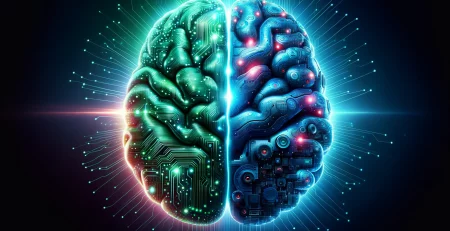




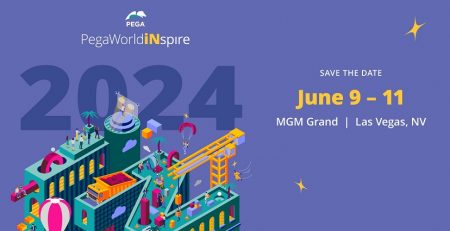
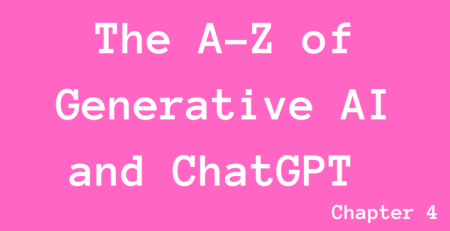
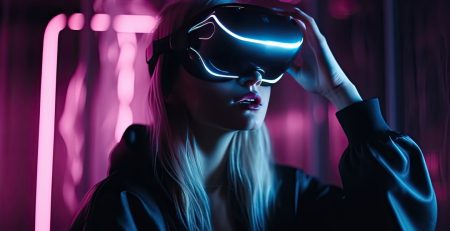
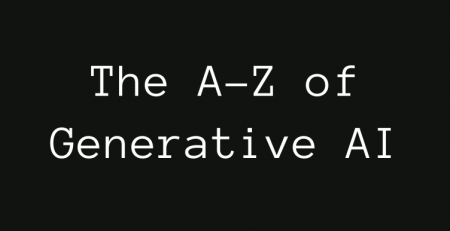
Leave a Reply